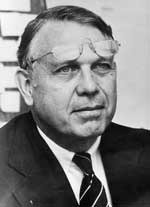michaelhill
What Would It Take To Get You To Fight?
Dr. J. Michael Hill, LS President
(Presented on 30 July 2011 at The League of the South national conference in Abbeville, South Carolina)
WHAT would it take to get you to fight? I’m not speaking figuratively but literally. What would it take to turn you into a William Wallace or a Robert Bruce, an Issac Shelby or a Francis Marion, a Bedford Forrest or a John Pelham, a Michael Collins or a Tom Barry?
Before you answer, ponder some things and count the costs. First, what is so valuable to you that it is indispensable to life itself? Ordered liberty? Loved ones? The place that sustains you and that you call home? The free and unfettered practice of your Christian faith?
- Read more about What Would It Take To Get You To Fight?
- Log in to post comments
On Sucession and Southern Independence
On Secession and Southern Independence
By Dr. Michael Hill, President, The League of the South
The voluntary union (or confederacy) of States known as the United States was born of a secessionist movement against Great Britain, and our Declaration of Independence is, at base, a secessionist document. How, then, can secession legitimately be called "un-American?"
When our Founding Fathers broke the bonds of political association with the British Empire in 1776, the former colonies became free and independent States constituting thirteen separate communities, each asserting its sovereignty. This state of affairs received confirmation by both the Articles of Confederation (1778) and the Treaty of Paris (1783). Thus Americans themselves, as well as their British foe, acknowledged that each State was a separate and sovereign entity.
The sovereignty of the separate States is an important issue in understanding exactly how the United States was formed under its Constitution of 1787-88. When delegates from the States met in Philadelphia in May 1787, they came as representatives selected by the people (i.e. citizens) of their respective States. These delegates were not given authority by the people of their States to make any binding agreements, rather, they were only to discuss proposed changes to the Articles of Confederation. Any changes to the Articles might become effective only if they were ratified in convention by the citizens of the separate States.
- Read more about On Sucession and Southern Independence
- Log in to post comments


















